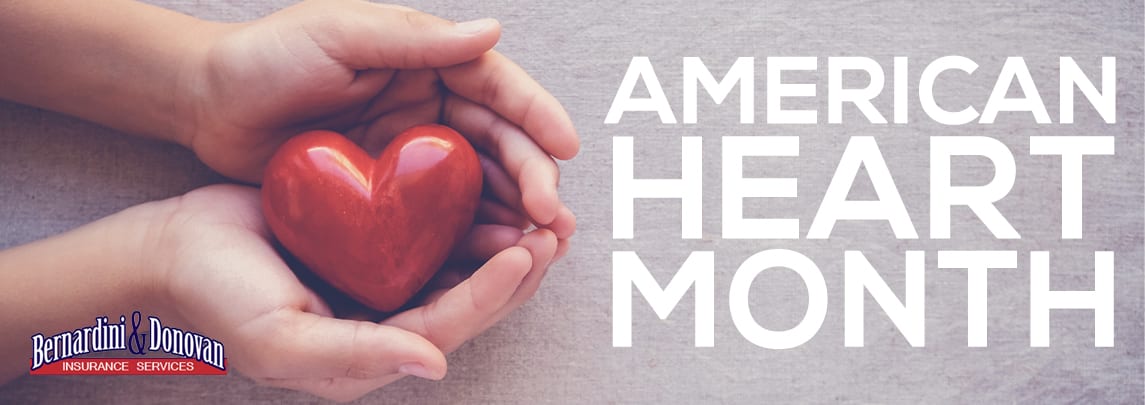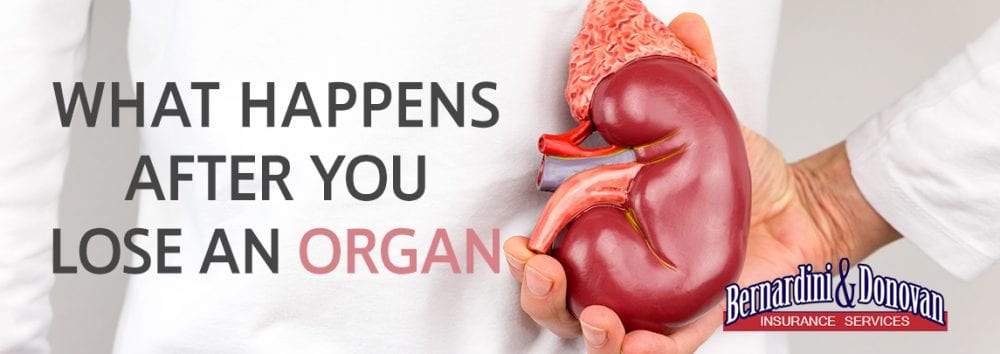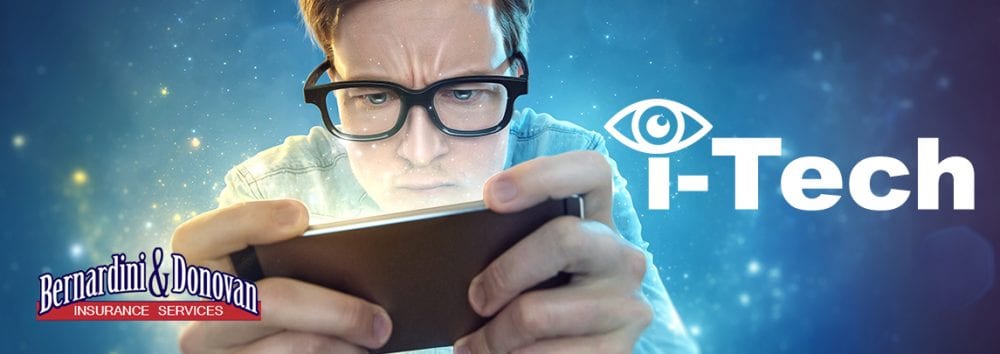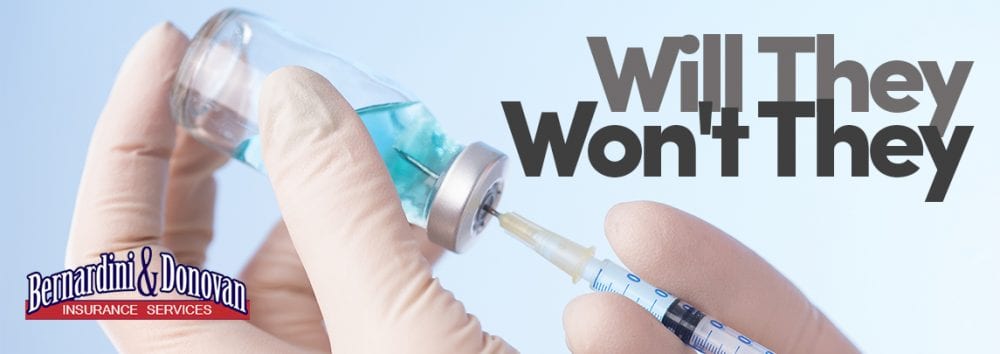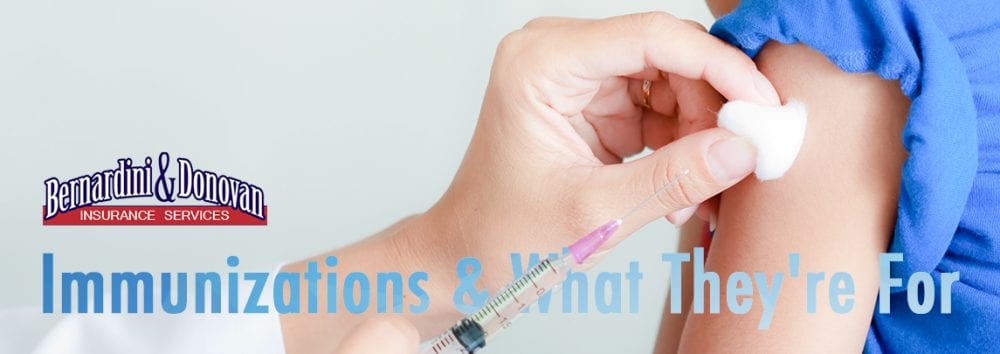For those on the fence, here are the penalties for not purchasing health insurance coverage
This is vital information for those who are on the fence about whether they should purchase coverage or not. Beginning in 2020, the California individual mandate required that all California residents maintain minimum essential health coverage (MEC) for each month of the year.
If you haven’t had health insurance for whatever reason, it’s important to understand the penalties for what happens down the line when filing taxes. While this is focusing on Californians, individuals in states across the country could be affected in similar ways.
IS HEALTH INSURANCE REALLY THAT IMPORTANT?:
People might wonder why the U.S. government emphasizes health insurance. In summary, there are two primary reasons to have health insurance:
• Health insurance supports you if you get sick
• Health insurance helps you avoid getting sick to begin with
Health Insurance Supports You if You Get Sick.
Most people can’t pay for all their health care out-of-pocket and opt to put it on a debit or credit card. But that’s just another financial burden that’ll have to be addressed at some point.
Health insurance provides financial protection in case you have a serious accident or illness.
For example, a broken leg can cost up to $7,500 — who has that amount of money just laying around to be used, and on a broken leg, at that? Chances are, if you’ve got $7,500 to put toward a broken leg, you’re better off paying for monthly health coverage, as it can help protect you from those high, unexpected costs.
Read more about the benefits of having health insurance coverage here and here.
Health Insurance Helps You Avoid Getting Sick to Begin With (the “I don’t need health insurance because I don’t get sick” Debate)
Does this sound familiar? Some of us have shared similar thoughts in the past, and this is especially the case with individuals who pay attention to their health, eat well, exercise on a regular basis, and simply don’t get sick often.
But forgoing health insurance coverage still isn’t recommended.
You might think that signing up for health insurance, paying a monthly premium, and not getting sick or receiving any health care is a loss of money. But it isn’t.
- There are many health insurance benefits you can use even without getting sick, such as vaccinations and checkups, that help keep you healthy over the long run.
- Even if you don’t get into an accident, have large health care costs, or need to use your health insurance benefits, you still get the peace of mind of knowing that, if you had gotten sick, you wouldn’t be facing all those medical costs on your own.
So, what happens if you don’t have health insurance coverage? Well, your taxes will be affected.
PENALTY FOR NOT HAVING QUALIFYING HEALTH INSURANCE:
MEC includes employer sponsored insurance, individual market coverage purchased through Covered California or directly from issuers, Medicare Parts A and C, and most Medi-Cal coverage.
Those who do not meet this requirement must pay a penalty on their state income tax return unless they qualify for an exemption.
For 2021, the amount of the penalty for not having qualifying health insurance has increased. As a reminder, there are two methods of calculating the penalty, and a household will pay whichever calculation yields the larger penalty:
• A flat amount based on the number of people in the household – $800 per adult 18 years or older and $400 per dependent child for no coverage for an entire year; up to an annual max of $2,400.
• A percentage of the household income – 2.5% of all gross household income over the tax filing threshold.
• The California Franchise Tax Board (FTB) launched the individual mandate penalty estimator in 2020 to help consumers calculate the penalty they may owe if they go without qualifying health coverage.
HOW DO YOU KNOW IF YOU QUALIFY FOR AN EXEMPTION:
Exemptions mean the fee for not having health insurance no longer applies. Here are the exemptions:
- If you’re 30 or older and want a “Catastrophic” health plan, you must apply for a hardship exemption to qualify. See details about exemptions and catastrophic coverage.
- If you live in Maryland, visit Maryland Health Connection for information on exemptions.
- If you live in the District of Columbia, visit DC Health Link.
- If you live in California, visit Covered California.
Let’s talk briefly about that final point geared toward Californians. According to the official CoveredCA.com website: “Covered California is a free service that connects Californians with brand-name health insurance … [providing] financial help when you buy health insurance from well-known companies.”
We encourage you to check out the website to learn more about your health coverage options.
And if you have more questions, reach out to us for more information; we’ll be happy to help. https://www.bdhealthinsurance.com/contact-bernardini-donovan-insurance/
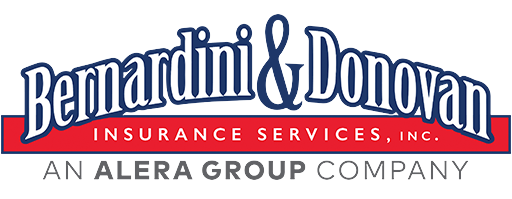
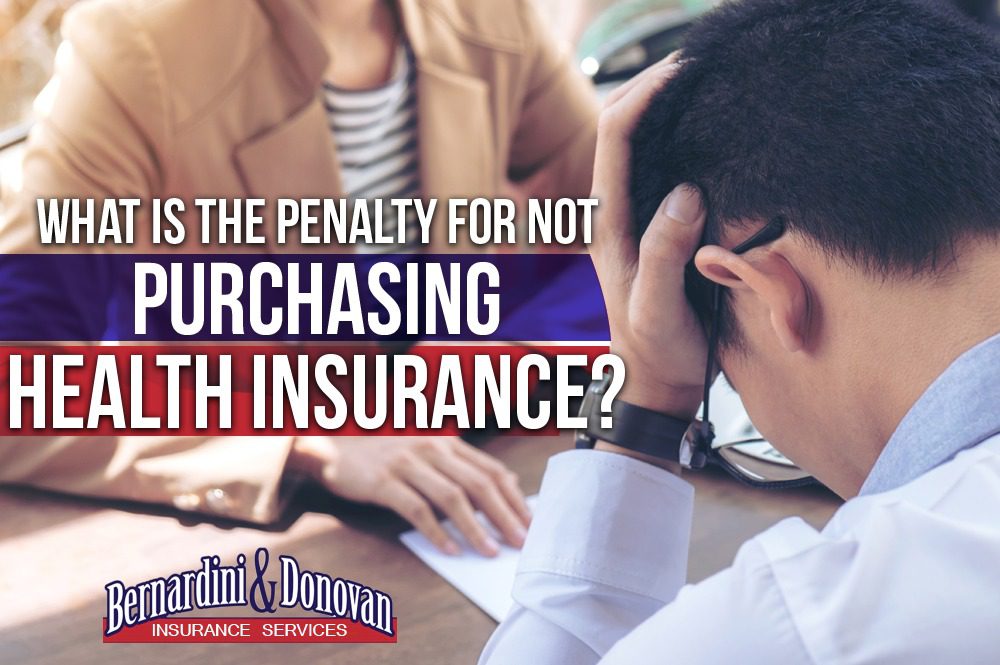
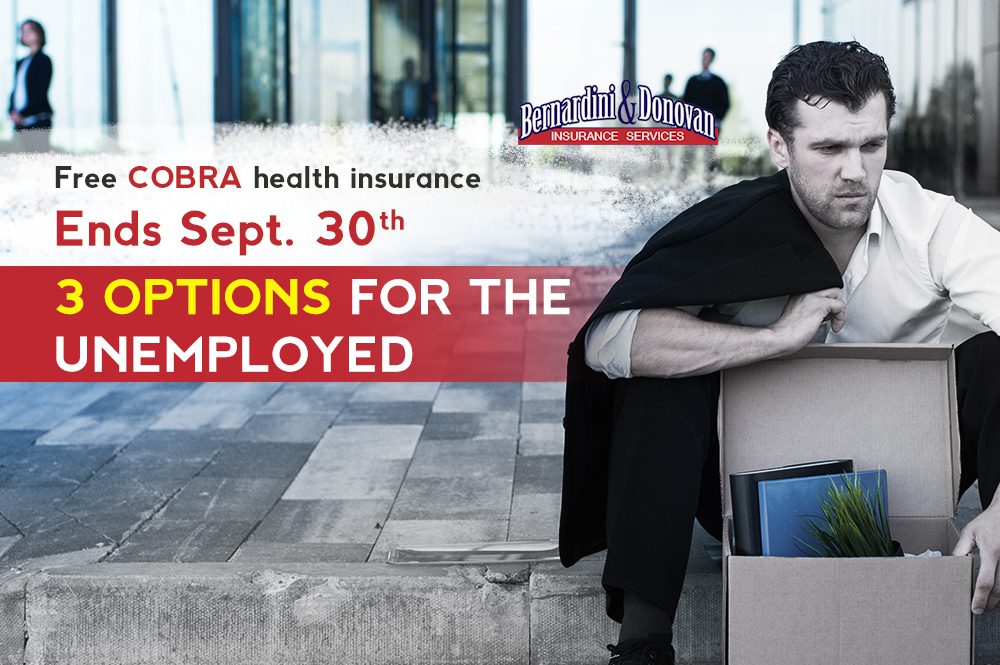
 When Sept. 30 rolls around, it’ll be goodbye to that premium health coverage from COBRA and hello to many, many questions (and a bit of financial panic for the unemployed). But we’ll start by saying you shouldn’t panic — there are options that unemployed individuals could and should begin to consider now.
When Sept. 30 rolls around, it’ll be goodbye to that premium health coverage from COBRA and hello to many, many questions (and a bit of financial panic for the unemployed). But we’ll start by saying you shouldn’t panic — there are options that unemployed individuals could and should begin to consider now.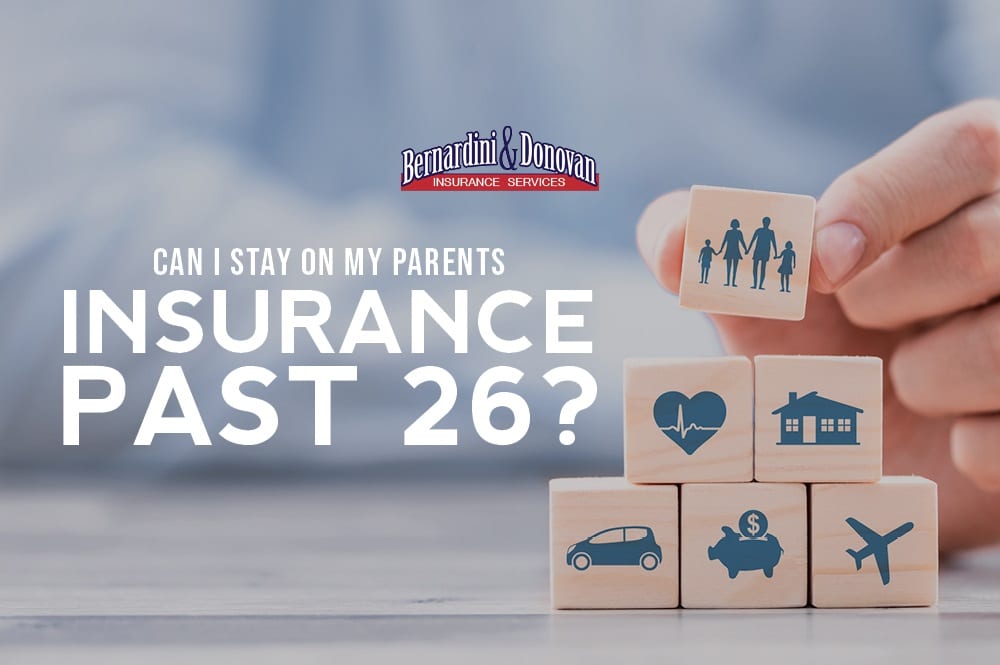
 Many have wondered what to do about health insurance after they turn 26. For many young adults, you might also wonder: Can you stay on your parent’s health insurance after 26?
Many have wondered what to do about health insurance after they turn 26. For many young adults, you might also wonder: Can you stay on your parent’s health insurance after 26?